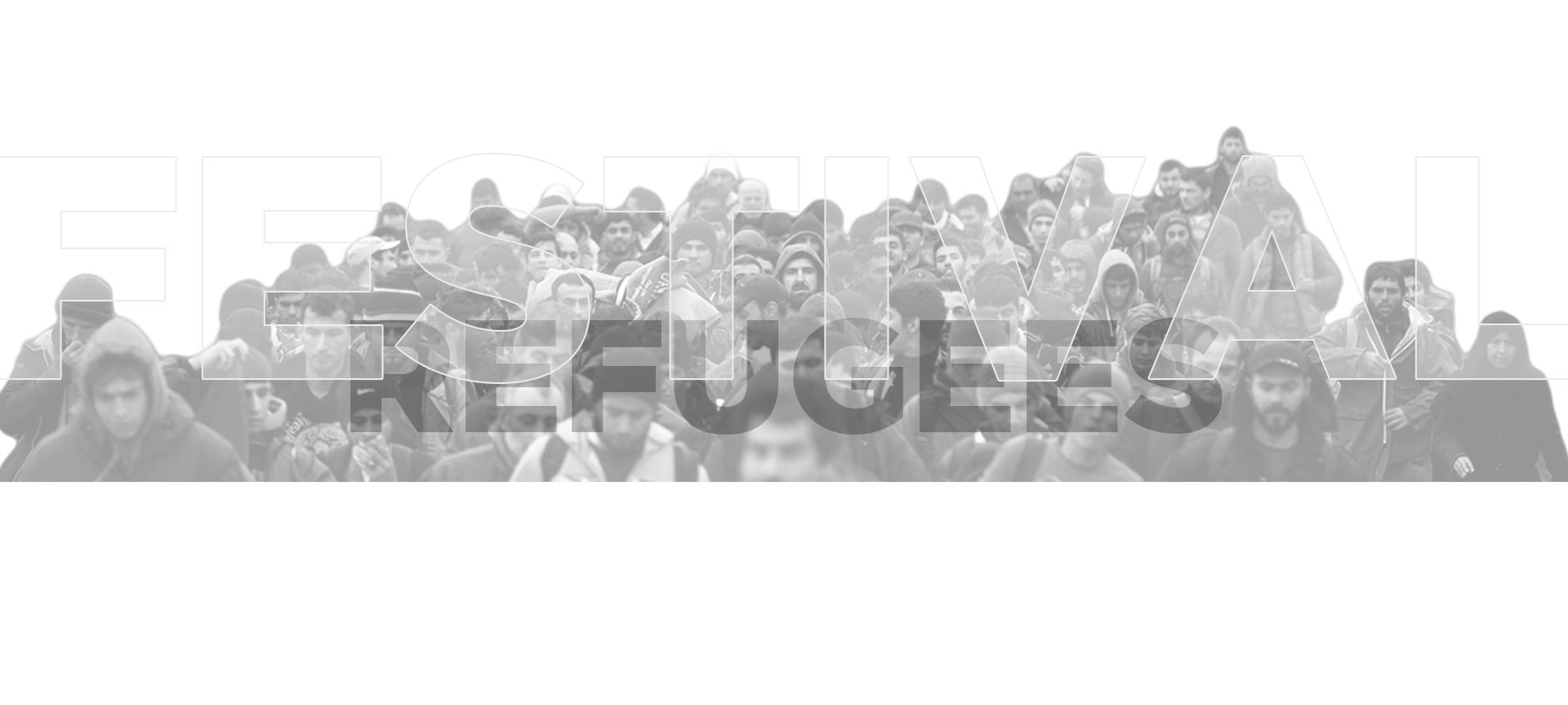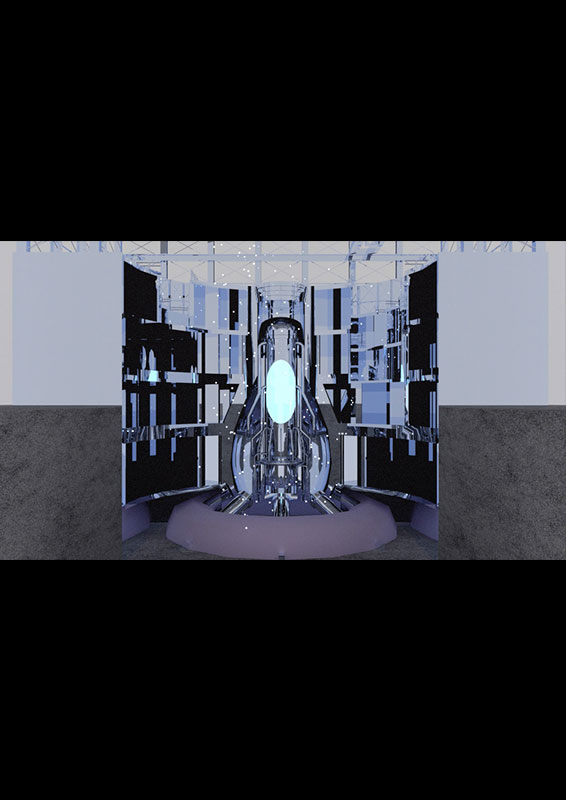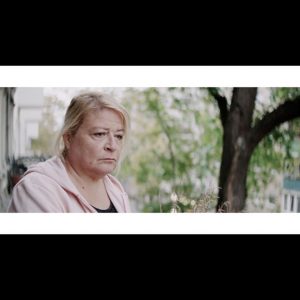Description
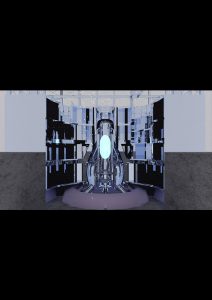
A man applying for refugee status in Japan was told falsely that “If you work in the decontamination effort, your visa will be extended” following the accident at Tokyo Electric Power Company’s Fukushima Daiichi nuclear power plant. ALARA was created based on this incident.
The definition of the “1951 Convention Relating to the Status of Refugees” refers to the protection of persons from political or other forms of persecution. A refugee, according to the Convention, is someone who is unable or unwilling to return to their country of origin owing to a well-founded fear of being persecuted for reasons of race, religion, nationality, membership of a particular social group, or political opinion. Despite the above, Hossein Monie whose situation is reported in this work, has been denied an asylum application for refugee status in Japan since 2013. While the number of applications in Japan has increased more than ten times, from 1,599 in 2008 to 19,628 today, the number of approvals has been decreasing year by year, with only 20 approved last year. In addition, foreigners are detained at the Tokyo Immigration Bureau under conditions which deprive them of human dignity because there are no legal restrictions on the terms of their detention. Japan’s national refugee policy is the most restrictive in the world, which places refugees in an ambiguous space of exclusion and inclusion, much like decontamination soil.
After nuclear energy was discovered by Otto Hahn in Germany and confirmed and demonstrated as a fission reaction by Lise Meitner, the world’s first atomic bomb was manufactured by the Manhattan Project in the United States in 1945. In early August of that year, atomic bombs were dropped on Hiroshima and Nagasaki, Japan. After that, nuclear power was incorporated into the capital. In other words, nuclear power was first used for military purposes, and the conversion of weapons of mass destruction into civilian use. Therefore, there has always been the possibility of catastrophic accidents.
Furthermore, the Japanese nuclear power plant system was a project led by former Prime Minister Nakasone, Japan’s leading right-wing leader, as a neoliberal policy emphasizing cost and benefit. As an adherent of neoliberalism, he sought to continuously increase the potential of nuclear armament. The Fukushima nuclear power plant, which was destroyed by a natural disaster in 2011, covers an area of 14,000 square kilometers. The 1 million people living in this area were subjected to an annual exposure of 20 millisieverts, which is 20 times higher than before the accident. In addition, the working environment has deteriorated even more than before the accident. The gap between regular employees and subcontractors has widened. In the name of the global economy, it has become labor imposed on migrants and refugees.
The constellation of two normalized states of exception, “Nuclear Accidents and Refugees,” is highlighted by a pair of oral histories, text, fictional animation and realistic moving images.
CREDITS
Direction and Editing:
Kounosuke Kawakami
3DCG Assistant: Takumi Yamamoto
Music: ‘Minimal 05 Light White Surface’ Jonnie 13 Black
Voiceover :
Chris Walton
Interviewee:
Hossain Monire
Voice Over Text: Antonio Gramsci “Prison Notebooks” 1929 – 1935
Antonio Negri & Michael Hardt, “Empire” 2000
Ministry of the Environment “Decontamination Guidelines” 2013
Special Thanx: Shuya Masuda, Kozo Shimizu
Supported by: Terumo Foundation for Life Science and Arts
ALARA is an acronym for “as low as (is) reasonably achievable,” which means making every reasonable effort to maintain exposures to ionizing radiation as far below the dose limits as practical, consistent with the purpose for which the licensed activity is undertaken, taking into account the state of technology, the economics of improvements in relation to state of technology, the economics of improvements in relation to benefits to the public health and safety, and other societal and socioeconomic considerations, and in relation to utilization of nuclear energy and licensed materials in the public interest.
Director Biography – Kounosuke Kawakakami
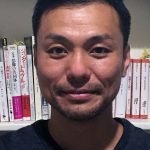
1979 Born in Yamanashi, Japan
2000 – 2003 Central Saint Martins College of Art And Design – BA Fine Art
2003 – 2004 Central Saint Martins College of Art And Design – MA Fine Art
2013 – Lecturer , Kurashiki University of Science and the Arts, Okayama, Japan
Director Statement
Solo Exhibitions
2017 Hegemony Here is Born in the Factory, Kotobuki Meeting, Tokyo
2017 Mizushima Complex “History of immigrant workers in Mizhusima” , Blanclass, Yokohama
2015 Dada-inspired performance and re-enactment of “Sanka Theater” , SuperDeluxe, Tokyo
2015 Dada-inspired performance and re-enactment of “Sanka Theater” (1925,Tsukiji Little Theater: 1927, Asahi Kodo, Tokyo), Institut français du Japon, Tokyo
2012 Beaty of Ruin, Identity Art Gallery, Hong Kong
2011 (H)allo-Poiesis, Daiwa Foundation, London, UK
2007 Migration, Houldsworth Gallery, London, UK
2006 Mindustrial Evolution, Bearspace Gallery, London, UK
Selected Exhibitions
2018 Visions in the Nunnery P3 Bedwyr Williams, The Nunnery, London
2017 Maebashi Media Festival, 旧安田銀行担保倉庫 西側, Maebashi, Gunma
2015 The Task of the Transla’tor’, Goethe-Institut Japan, Tokyo
2014 Tag-ten, Matumoto art museum, Japan
2014 Japon, Abbaye Saint Andre Centre d’art Contemporain, Meymac, France
2014 Dualities 3, Identity gallery, Hong Kong
2013 OPEN 16, International Exhibition of Sculptures and Installations, Venice Lido – San Servolo Island
2013 Primordial Essence, Art Lab, Nagoya
2013 Double Message, Scai the Bathhouse, Tokyo
2013 All That Is Solid Melts Into Air : From Interactive To Interpassive, Gallery Momo, Tokyo
2013 Education, Education and Education, Zone, Kurashiki
2013 The Painter of Modern Life, Gallery Hiramine, Kagoshima
2013 Re-View, Identity Gallery, Hong Kong
2012 The Echo, Kunstraum Kreuzberg / Bethanien, Projektraum, Berlin, Germany
2012 BE/LONGINGS, Gazelli Art House, London, UK
2011 Camera lucida, Aisho Miura, Tokyo, Japan
2011 Beyond, Scai The Bathhouse, Tokyo, Japan
2011 VIP Art Fair
2010 Summer Show, Maddox Gallery, London, UK
2010 Cultural Detritus, Pippy Houldsworth, London, UK
2010 Voca Prize-Winning Work 2007-2009, The Dai-Ichi Mutual Life Insurance Gallery, Tokyo, Japan
2010 Sarcophagus of the Kingdom, I-MYU Project, London, UK
2009 Reconstructing the Old House, Rusking Gallery, Cambridge, UK
2009 Virtual Records, YOD Gallery, Osaka, Japan
2009 Reconstructing the Old House, The Nunnery Gallery, London, UK
2009 Barock Plastik, I-MYU Project, London, UK
2008 Marmite Art Prize, studio1.1, London, UK
2008 Twenty, Dazed and Confused Gallery, London, UK
2008 Echo, Zaimu, Tokyo, Japan
2008 Chicago Art Fair, Chicago, USA
2008 Pulse, Pier 40, New York, USA
2008 Voca Art Prize, Ueno Royal Museum, Tokyo, Japan
2007 Scope Miami, Miami, USA
2007 The Future Can Wait, Atlatntis Gallery, London, UK
2007 Hand In Hand, Japan Embassy, London, UK
2007 Year 07 Art Project, County Hall, London, UK
2007 Scope Basel, Basel, Switzerland
2007 Tech- Mach – Maya-Con, Myonichikan, Tokyo, Japan
2007 Selected by Victoria Miro, APT Gallery, London, UK
2007 Selected by Matthew Colloings & Emma Biggs, APT Gallery, London, UK
2007 Scope New York, New york, USA
2007 New London Kicks, Soho House, New York, USA
2006 Dynamic Entropy, Houldsworth Gallery, London, UK
2006 Tokyo Monamo, 43 South Molton Street, London, UK
2006 Synchro-Tron, Aqffin Gallery, London, UK
2006 Curious New Terrain, Nolias Gallery, London, UK
2006 10th Planet, Tower Bridge Business Complex, London, UK
2006 Chimera, 148 Gallery, London, UK
2006 Group Show, My Life in Art Gallery, London, UK
2006 Zoo Art Fair, London, UK
2005 Agoraphobe, Bearspace Gallery, London, UK
2005 What Happens When Everything is Reduced to Ones and Zeros?, Pearlfisher Gallery, London, UK
2004 The Horizon of Expectation The Empire Gallery, London, UK
Awards / Residencies
2010 Trainee under the overseas study program for upcoming artists of the Agency for Cultural Affairs, Tokyo, Japan
2008 Vision of Contemporary Art Prizewinner, Ueno Royal Museum, Tokyo, Japan
2007 Celeste Art Prize shortlist
2007 Creekside Open x 2, Finalist Selected by Matthew Collings and Emma Biggs Finalist
2007 Creekside Open x 2, Finalist Selected by Victria Miro Finalist
Collections
Pigozzi Collection, USA
Elspeth and Imogen Turner Collection, UK
UBS Bank New York, USA
UBS Bank Los Angeles, USA
UBS Bank, UK
Taguchi Collection, Japan
Progressive Art Collection, USA
West Collection, USA
Wellington Management, USA
The Dai-Ichi Mutual Life Insurance Company, Japan


